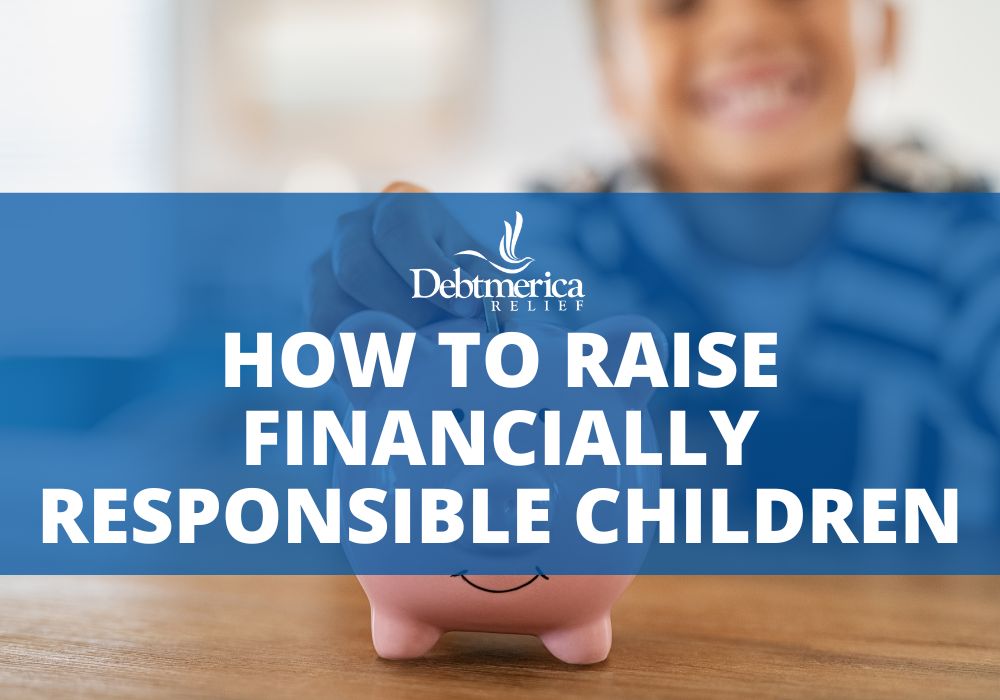How to Raise Financially Responsible Children

In today’s fast-paced, consumer-driven world, teaching children the value of money and financial responsibility is more crucial than ever. As parents, instilling these principles early can set your children on a path to financial stability and success. Here’s a comprehensive guide to help you raise financially responsible children.
Start Early: The Basics of Money
Begin teaching your children about money as soon as they start to show interest. Use simple terms to explain what money is, how it’s earned, and its uses. For very young children, this might involve using play money or incorporating money lessons into their playtime.
Another option is to consider giving your children an allowance to teach them about managing their own money. Tie allowances to simple chores or responsibilities to help them understand that money is earned through work. This practice can help them grasp the concept of earning and valuing their income.
Teach Saving and Budgeting
Encourage your children to save a portion of their allowance or earnings. Introduce them to the concept of setting financial goals, whether it’s saving for a toy, a game, or a special outing. You can go old school and use piggy banks or a savings account to show the progress they’re making towards their goals.
Teach your children how to budget their money. Start with simple categories like spending, saving, and giving. Use real-life examples and involve them in family budgeting activities. Show them how to track their expenses and understand where their money goes.
Smart Spending
Help your children distinguish between needs and wants. Discuss the difference and encourage them to prioritize their spending. This lesson can be reinforced during shopping trips by asking them to think about whether an item is a need or a want before making a purchase.
Teach your children the value of comparison shopping. Show them how to compare prices, look for deals, and consider the quality of items before buying. This can be a fun and educational activity during family shopping trips.
Introduce Banking Concepts
When your children are old enough, help them open a savings account. This hands-on experience will teach them about banking, interest, and the importance of saving. Many banks offer special accounts for children with lower fees and no minimum balance requirements.
As your children grow older, introduce them to online banking and digital payment methods. Teach them about the convenience and security of these tools, as well as the importance of protecting their personal information.
Model Financial Responsibility
Children learn by observing their parents. Model good financial habits by budgeting, saving, and making informed spending decisions. Discuss your financial choices with your children to provide context and understanding.
Involve your children in age-appropriate financial decisions. For example, you could discuss the family budget, involve them in planning a vacation, or let them help with grocery shopping. This involvement will give them practical experience and a sense of responsibility.
Discuss Long-term Financial Planning
Introduce your children to the basics of investing as they become teenagers. Explain concepts like stocks, bonds, and mutual funds. Consider using educational games or apps to make learning about investing fun and engaging.
Discuss the importance of long-term financial planning, including saving for college, buying a car, or other significant expenses. Encourage them to think about their future financial goals and the steps they need to take to achieve them.
Debt Help for Parents
Raising financially responsible children is an ongoing process that requires patience, consistency, and dedication. By starting early and building on their knowledge as they grow, you can equip your children with the skills and understanding they need to manage their finances effectively. Teaching children to be financially responsible is not just about instilling good habits; it’s an investment in their future that can lead to significant savings and financial security later in life. Debtmerica Relief has over 17 years of experience in providing relief to our clients whose financial burdens have become too much to handle.
If you need help with debt, contact us for a free consultation.



